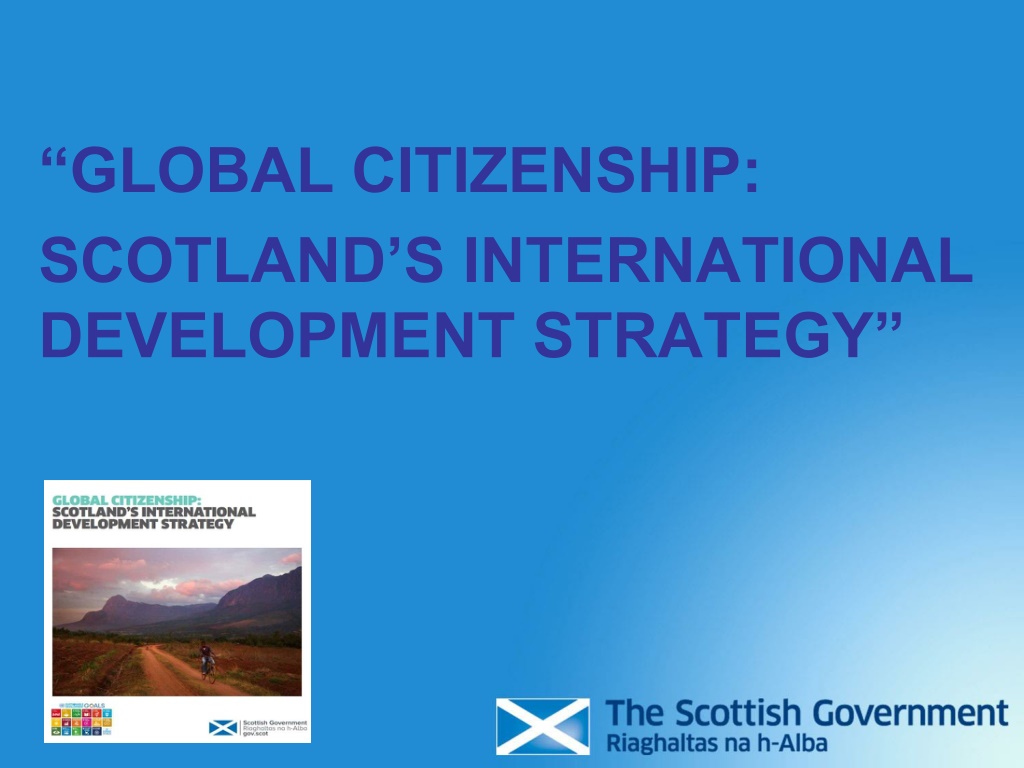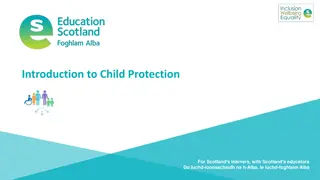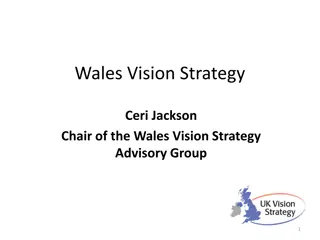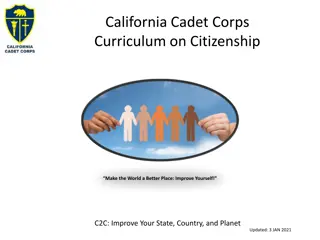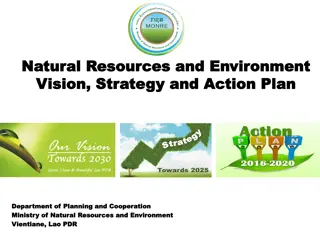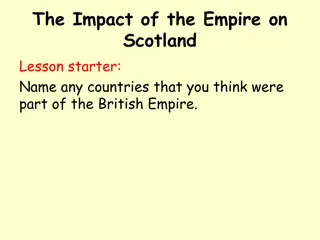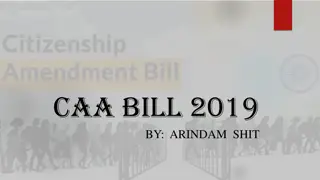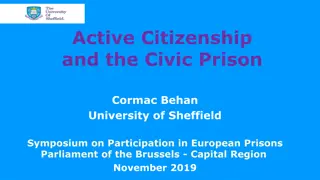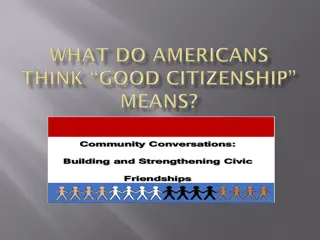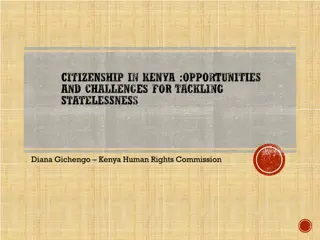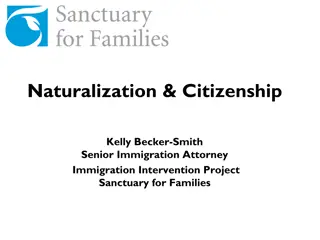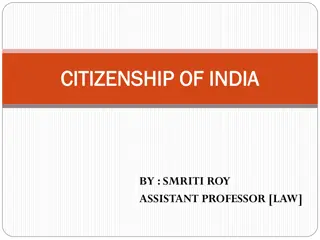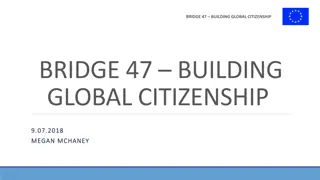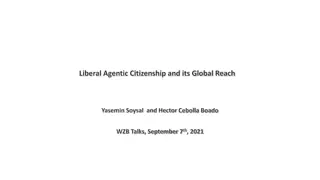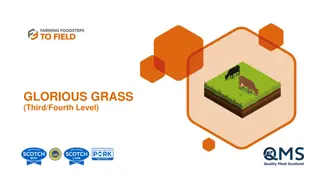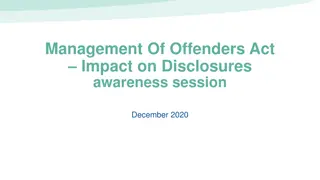Scotland's International Development Strategy: A Vision for Global Citizenship
Scotland's international development strategy focuses on sustainable development, poverty alleviation, and global citizenship. The vision emphasizes empowering partner countries, engaging Scottish citizens, and fostering historic relationships. Through strategic funding streams and collaboration, Scotland aims to make a meaningful impact on a global scale.
Download Presentation

Please find below an Image/Link to download the presentation.
The content on the website is provided AS IS for your information and personal use only. It may not be sold, licensed, or shared on other websites without obtaining consent from the author. Download presentation by click this link. If you encounter any issues during the download, it is possible that the publisher has removed the file from their server.
E N D
Presentation Transcript
GLOBAL CITIZENSHIP: SCOTLAND S INTERNATIONAL DEVELOPMENT STRATEGY
Ministerial Foreword International development is a key part of Scotland s global contribution within the international community. It encompasses our core values, historical and contemporary, of fairness and equality. It is also about Scotland acting as a good global citizen. We are the inheritors of that tradition; it is who we are today, and it who we want our next generation to be .
Our Vision Embedding the Global Goals, Scotland will contribute to sustainable development and the fight against poverty, injustice and inequality internationally
Our Priorities Encourage new and historic relationships Empower our partner countries Engage the people of Scotland Enhance our global citizenship
Our Partner Countries Malawi, Zambia and Rwanda will form our sub-Saharan project base; and Pakistan will see a strong emphasis on education through scholarships
Our Ways of Working Investing our International Development Fund - 3 funding streams: development assistance; capacity strengthening; and investment Utilising Scottish expertise Collaborating with others: partner countries; civil society; other donors
Development Assistance: c75% of IDF (initially) Empower our partner countries / Encourage new & historic relationships: support development assistance overseas: majority thro competitive challenge funding models for Malawi, Zambia & Rwanda, and the Small Grants match funding. Engage people of Scotland, & Enhance global citizenship: support civil society in Scotland incl (non-competitive): core funded bodies: SMP, MaSP, SFTF & The Alliance. [Total 780k for 2017/18] Development Education Centres (DECS) volunteering support for Scotland s young people
Capacity Strengthening: up to 20% of IDF (initially) Empower our partner countries / Encourage new & historic relationships / Engage the people of Scotland: Pakistan: we will also continue to support education through women and children s scholarships run by British Council Pakistan. targeted at harnessing Scottish expertise: capacity building & strengthening partnerships thro institutional links, e.g. Police Scotland work in Malawi or Blantyre-Blantyre project with Liverpool Welcome Trust, University of Glasgow and College of Medicine skills sharing through professional volunteering, e.g. NHS
Investment: up to 5% of IDF (initially) Empower our partner countries: our partner countries WANT investment. We believe trade & investment is important, as is role of private sector: to support Malawi, Zambia & Rwanda move beyond aid & build sustainable economic growth domestically, in line w/ their wider govt policies. Support too for social enterprise models. Recent investment initiative for Malawi saw SG obtain 1M in match funding from private indivs. We are clear that IDF spend for devpt assistance, capacity strengthening or investment must be to implement Our Vision, ie tackling poverty & inequality & contributing to sustainable devpt.
3 streams working together? Development assistance: Malawi funding rounds opened 03 November 2017 Capacity strengthening funding stream: will then overlay, to support: needs identified (by Malawi) incl health volunteering & Police work could include business mentoring/interns Investment: to help grow local economy in Malawi
Malawi Development Programme 2018-2023 Main Changes Two Stage application process (Concept Note and Full application) Maximum funding available increased to 300k pa ( 150k in year 1) (Max 1.35 million) Maximum project period increased to 4.5 years
Malawi Development Programme 2018-2023 Main changes (cont) Capital expenditure increased to 20% of project budget (50% for RE projects) Scottish admin costs capped at max of 10% of project budget Current projects can apply for funding to continue their current work
Malawi Development Programme 2018-2023 Application Process For this funding round we will operate a two stage application process. Concept Note Stage - organisations submit a concept note summarising why the project is needed and what it seeks to achieve. Application Stage - Successful organisations will be invited to complete a full application form which will require more detail of the project plans.
Malawi Development Programme 2018-2023 Themes In accordance with the existing 2005 Cooperation Agreement between the Scottish and Malawian Governments, we will only fund projects for work within the priorities set by the Government of Malawi in the areas of: Health Education Civic Governance; sustainable economic development; and With the agreement of the Government of Malawi, we will also fund Renewable Energy projects in Malawi
Government of Malawis Priorities Health Strand Human resources for health system strengthening Universal coverage of essential health services Addressing conventional and traditional determinants of health in Malawi Quality Assurance and Quality Improvement of Essential Health Services
Government of Malawis Priorities (Cont) Civil Society and Governance Strand Capacity building for the new Parliament i.e. Committee work etc. Institutional capacity building for the Malawi Prison Service (including Young Offender services) Support towards the fight against Corruption Support organisations advocating for good governance and human rights Support organisations advocating for gender equality Support for free Paralegal services
Government of Malawis Priorities (Cont) Education Strand General Teacher training (including Special Needs, especially teacher training for working with students with Learning Difficulties) Internal efficiency of the Primarily school structure Decentralisation of education management School infrastructure (new classrooms, teachers houses and latrines) Provision of teaching and learning materials Inclusive education Curriculum strengthening at all levels Bursaries to support vulnerable students (particularly Secondary school) Up scaling of school feeding programme (particularly Primary school) Upgrading of Community Day Secondary Schools Introduction of more double shift schools
Government of Malawis Priorities (Cont) Higher Education Access to Higher education Training of Higher education staff Curriculum strengthening in Technical, Entrepreneurial and Vocational Education and Training ( TEVET ) institutions Cost recovery mechanisms and finance mobilisation in public universities Public Private Partnerships Support for capacity to strengthen procurement, financial management, planning, budgeting and monitoring and evaluation systems.
Government of Malawis Priorities (Cont) Sustainable Economic Development Agricultural Development & Value Addition (Including irrigation elements as part of projects) Tourism Energy (Renewable Energy) (especially alternative sources of power from Solar) Environment & Natural Resources Management Finance and Investment Promotion
Malawi Development Programme 2018-2023 Timetable Dates Actions 03 November 2017 Opening 03 November 3017 26 January 2018 Concept Note Stage 29 November 2017 Information Day March 2018 Concept Note Decisions 02 April 11 May 2018 Full Application Stage July 2018 Application Decisions 01 October 2018 Projects Commence
Zikomo! Scottish Govt International Development Team T. @scotgovID
